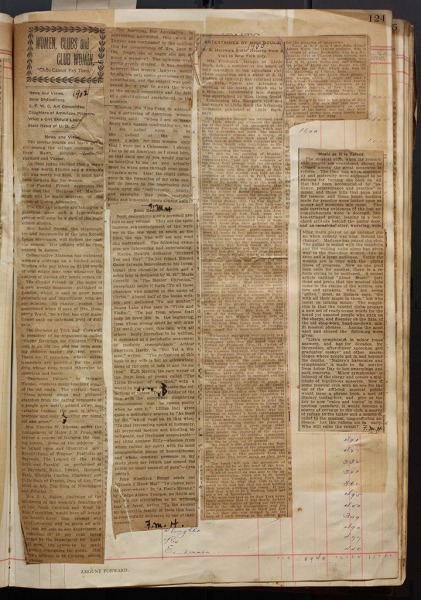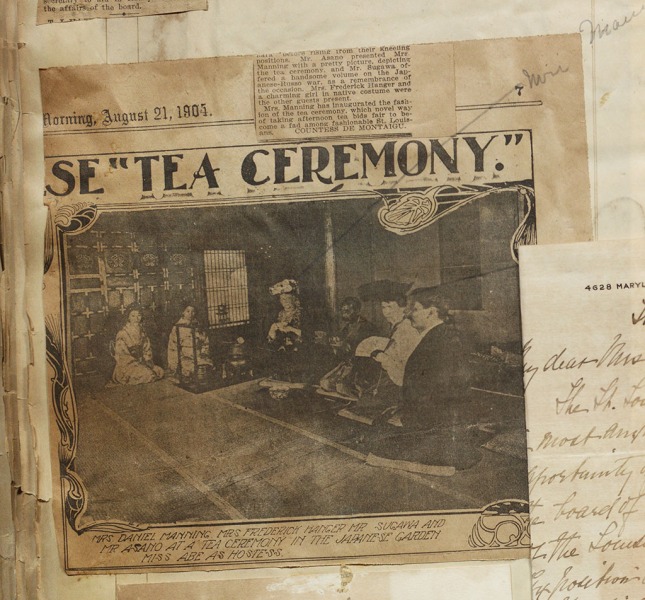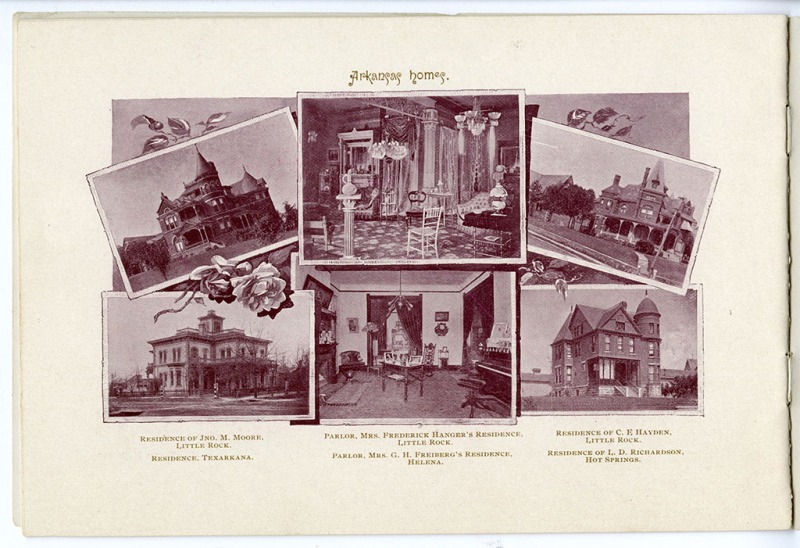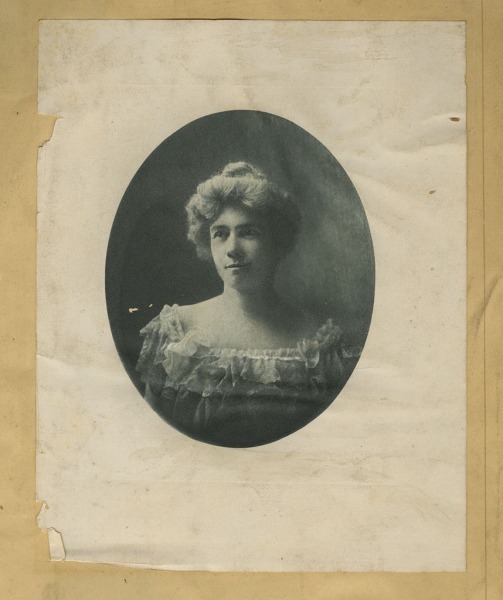An ornithological tip. The great American eagle is “She,”... the best looking of the kind…in fact the fore-flyer of the new woman and the most ultimate representation of the “eternal feminine.”
Frances Hanger, Arkansas Democrat
Frances Harrow Hanger (1856-1945) was a clubwoman, writer, and civic volunteer active in many aspects of cultural and public life of Little Rock from the 1870s until her death in the mid-20th century.
Born in Ottumwa, Iowa, in 1856, Frances Harrow was orphaned at age eight. She and her surviving brother, Albert Gallatin Harrow, were raised by a network of relatives. Both received fine educations for the time. Frances' education included the women’s program at Iowa State in Ames, the first coeducational university in the land grant system. Frances Harrow became a central figure in the social and civic life of Little Rock upon her 1877 marriage to Fredrick Hanger, a prominent member of the farming and business community, whom she met while visiting family in the city. Their home on Scott Street was among the social centers of the city.
During Hanger’s presidency, Arkansas GFWC members lobbied the legislature in favor of kindergartens, support of public libraries, the establishment of reform schools and a domestic science program at the university, and also symbolic matters such as designating the apple blossom as state flower. Hanger initiated and edited a Club Page at the Arkansas Democrat in 1900, the precursor to longstanding Federation coverage in the newspapers as the organization grew to encompass 20% of women statewide. With Clara Eno, another pioneer of the movement, she later compiled a history of organization’s activities, "The History of the Arkansas Federation of Women’s Clubs 1897-1934."
Widowed in 1900 and facing challenges of self-support and single parenthood, Hanger turned volunteer attributes and connections into paying skills. The socialite became a journalist, contributing to four newspapers in Little Rock, Memphis, and St. Louis, 1902 -1917, often covering her own activities, as she remained involved in community and national circles. Her newspaper writing ranged from events reportage to historical pieces and women’s issues. In some cases, her work circulated as far as the New York papers. During this period, Hanger reported on national meetings of the General Federation of Women’s Clubs, including issues such as admitting colored women’s clubs. Hanger authored a widely circulated resolution outlining Southern women’s objections. A veteran of 1893 Columbian Exposition committee work, Hanger served on the Ladies Committee of the St. Louis Exposition in 1904, welcoming distinguished guests throughout the fair with 20 other women from around the country.
In a time when women were not commonly public speakers, Hanger’s abilities were widely noted. Her 1912 book "From the Scrapbook of The Widow and the Bachelor" is a collection of toasts and occasional poems. She often collaborated with literary men of her time such as Fay Hempstead, Charles Brough, and Fred Allsopp on their publication projects. She served on the founding board of the Arkansas History Commission, undertook World War I volunteer work, and participated in public affairs well into her 70s and 80s.
Frances Hanger’s writings demonstrated an attention to women’s status in society and issues such as equal pay. She appeared on the Little Rock voter rolls in 1917-18, as the primary in Arkansas opened to women voters and she remained on the rolls throughout her long life. As with many of the time, her activities demonstrated also a commitment to the status quo – and the preservation of the privileges she and women of her class and race enjoyed.
Hanger Family Collection. Center for Arkansas History and Culture (CAHC), University of Arkansas at Little Rock, Little Rock, Arkansas. Box 3, Scrapbook.
See page 24 of the 1874 ‘academical’ department, Iowa State University for Frances M. Harrow of Ottumwa, U.S. School Catalogs, 1754-1986 [database on-line]. Provo, UT, USA: Ancestry.com Operations, Inc, 2012 accessed 10.31.2016. http://www.ancestry.com/inst/discoveries/Pfrecord?collectionId=2203&recordId=39743.
Utterback, Lucy Marion Reaves et al. Aesthetic Club Centennial History 1883-1993, Little Rock: Aesthetic Club, 1993. See the first two chapters especially.
Hanger Family Collection. Arkansas History Commission. Box 3, Folder 25, 1890s-1930s.
Arkansas Poll Tax, List of Electors Pulaski County. Center for Arkansas History and Culture (CAHC), University of Arkansas at Little Rock, Little Rock, Arkansas.
Jo Blatti is a social historian based in Little Rock, Arkansas, with extensive experience in research, writing, and production of public history projects in the mid-South and nationally. She currently directs First Person Plural: An Oral History of Arkansas Women and is also conducting research about Elizabeth Upham Reeve, widowhood and women’s roles in the formation of 19th-century organizations. Blatti participates frequently in professional activities and publishes in areas of public history and social history.




